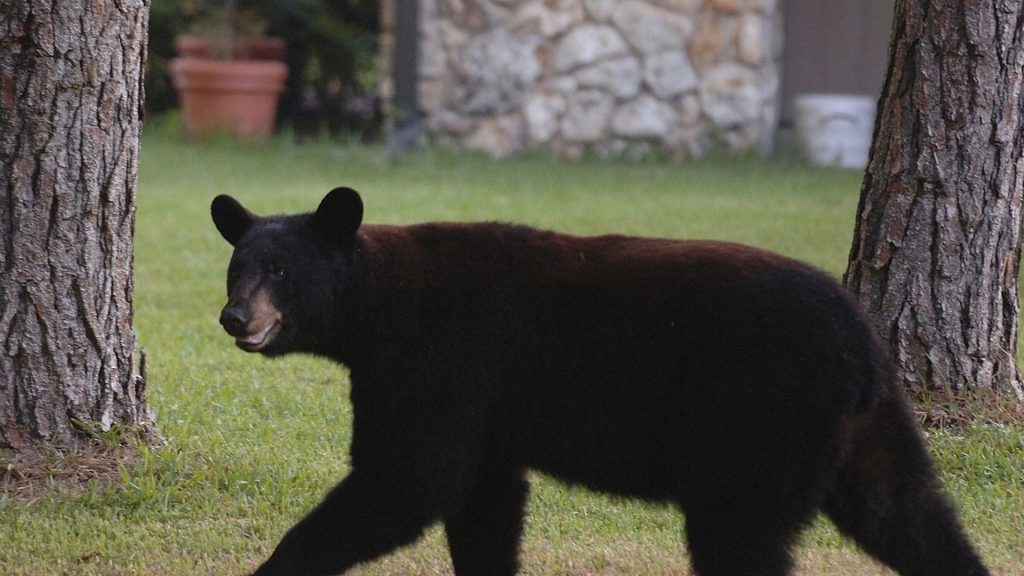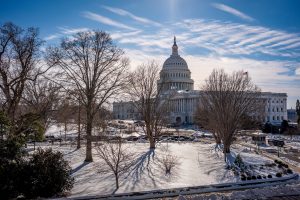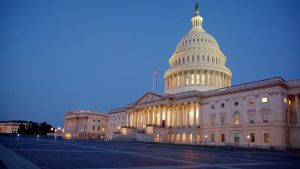Florida approves first bear hunt since 2015, as some raise concerns

Florida will hold its first black bear hunt in a decade this December under a new rule approved by state wildlife officials on Wednesday. The announcement comes despite criticism from animal welfare advocates over its allowance of dogs and bait. The Florida Fish and Wildlife Conservation Commission unanimously approved the measure following a public hearing in the panhandle of the state.
Unanimous approval
The hearing drew more than 150 people both for and against the new rule, which gained preliminary approval earlier this year, with wildlife officials emphasizing the need to manage the rising bear population in the state.
“We make decisions based on science,” commission chair Rodney Barreto said.
Opponents of the hunt
Critics contend the hunt is inhumane, unnecessary and done to appease trophy hunters.
“Not all the hunters support this hunt,” said Lauren Jorgensen, whose family owns a farm in Suwannee County. “We’d like to see nature in balance.”
Some argue the change was made too quickly without consideration for the long-term impact and the bears aren’t entirely to blame for rising interactions with humans.
“We are developing in this state at an insane speed, so the bears are being pushed out of their habitat,” Rhonda Roff, an environmentalist with the Sierra Club, told CBS News. “We’re building roads through their habitat.”
There are roughly 4,000 black bears in Florida, according to the FWC. It is one of the few states with a significant bear population that doesn’t have a designated bear hunting season.
Supporters of the hunt
Supporters of the new measure point to rising interactions between bears and humans as the reason bear hunts are necessary. Officials said there have been reports in the state of bears rummaging through people’s garbage cans, showing up on residents’ porches and sightings in neighborhoods and playgrounds. Some argue this creates a danger to the public.
“The reality is that the frequency and severity of bear interactions continue to rise,” Ottice Amison, a member of the Franklin County Commission, said. “Right now, too many of our residents see bears as threats and pests.”
Only one deadly bear attack has been documented in Florida. That came this May when an 89-year-old man and his daughter’s dog were fatally mauled in a rural southwest part of the state, according to CBS News.
The approved hunt has stricter rules than in the past, following a 2015 hunt when permits were given to anyone who could afford one. That led to the event being shuttered early after more than 300 bears were killed, including nearly 40 females with cubs, and officials note that the cubs likely died as a result as well.
Supporters of the latest effort, however, say this time will be different.
“What they’re allowing us to hunt is an insignificant fraction of the bear population,” Daniel Levesque, a hunter, told CBS News. “They’ll die of old age quicker than will impact them from hunting.”
Others disagree.
“This decision reflects political pressure, not ecological necessity or public will,” said Susannah Randolph, the director of the Sierra Club Florida Chapter.
“The hunts will happen in the woods, those bears are not the ones that are coming out,” she said.
The rules
Under the new plan, there will be a random lottery for permits, with just 187 allowed. Bear hunts are only approved in certain areas and permits cost $100 for state residents and $300 for nonresidents. The hunt will run from Dec. 6 through Dec. 28.
Owners of private land with more than 5,000 acres can set up a “bear harvest program” on their property under the newly adopted plan. Bears can be lured through bait stations on private land. Bowhunting is also permitted.
Florida wildlife officials said that they believe that, in the future, bear hunts could be held between Oct. 1 and Dec. 31 pending further research. State regulations may eventually allow up to six dogs to be used in the hunts, according to officials.





